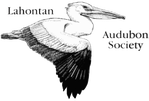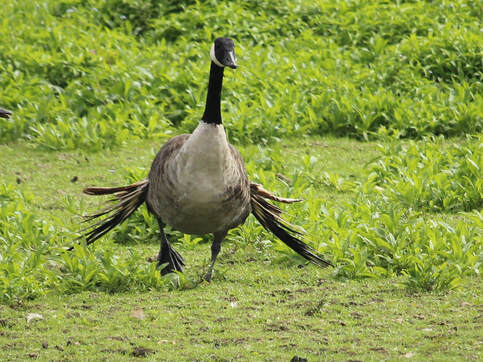LAS does not take in injured birds. If you have any questions about injured wildlife, please contact one of the following specialists listed below:
Nevada RehabilitatorS
Flyaway Bird Rescue - Silver Springs
Accepts all birds species, from finches to raptors.
Suzette Feillen runs the center and is its licensed bird rehabilitator with state & federal bird rehabilitation permits.
Phone: 775-515-9832. Email: [email protected]
Dayton Valley Wildlife Reststop
Accepts all birds and mammals.
Evelyn Pickles runs the center and is its licensed bird & mammal rehabilitator with state & federal rehabilitation permits.
Phone: 775-246-0470
Accepts all birds species, from finches to raptors.
Suzette Feillen runs the center and is its licensed bird rehabilitator with state & federal bird rehabilitation permits.
Phone: 775-515-9832. Email: [email protected]
Dayton Valley Wildlife Reststop
Accepts all birds and mammals.
Evelyn Pickles runs the center and is its licensed bird & mammal rehabilitator with state & federal rehabilitation permits.
Phone: 775-246-0470
California Rehabilitator
Lake Tahoe Wildlife Care, South Lake Tahoe
Denise Upton – Animal Care Director
ALL bird groups and many difficult species including bear, beaver, otter, bobcat, and mergansers
530-577-2273
Please note: Nevada birds & wildlife should be taken to the Nevada rehabilitators. Residents of California and the Tahoe Basin should bring birds to Lake Tahoe Wildlife Care in South Lake Tahoe.
Denise Upton – Animal Care Director
ALL bird groups and many difficult species including bear, beaver, otter, bobcat, and mergansers
530-577-2273
Please note: Nevada birds & wildlife should be taken to the Nevada rehabilitators. Residents of California and the Tahoe Basin should bring birds to Lake Tahoe Wildlife Care in South Lake Tahoe.
Orphaned Birds
The spring & summer is orphan season. If you find an orphaned bird on the ground, it’s best to leave it alone. Baby birds will often fledge (leave the nest) prior to their ability to fly. This is common & their parents will still take care of them even if they are on the ground. If the bird is in danger, you can move it to a safer place.
More information: I found a baby bird, what shall I do?
More information: I found a baby bird, what shall I do?
Reasons NOT to Feed Bread to Wild Geese
|
Rob Lowry, Birding Nevada
Today at Jake's Wetland in Minden, NV, an example of why it is not good to feed ducks/geese unnatural foods such as bread, chips, etc. These 2 geese were the only ones at the pond and they both ran up to me immediately upon arrival expecting to be fed, as apparently they usually are. This symptom is called "angel wing" and the goose will not be able to recover or fly again, which makes it more vulnerable to predation. Here are some options to feed geese/ducks at your local park:
|


